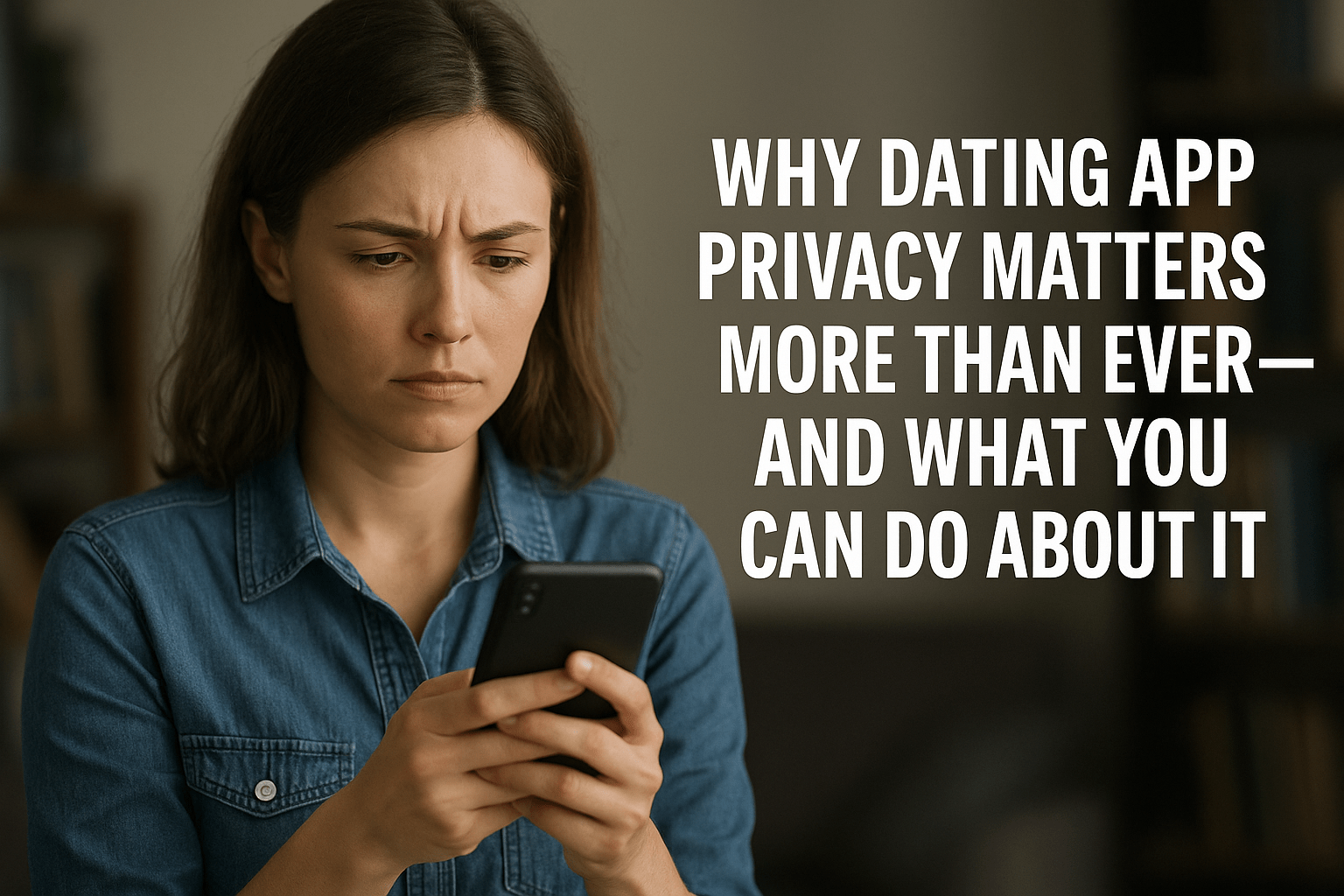In 2025, over 30 million Americans use dating apps—but so do data collectors, hackers, and surveillance firms. And now, with AI and location-tracking tools becoming embedded in dating platforms, privacy risks have escalated to new heights. Scandals like exposed location data, leaked sensitive content, and AI-powered deepfakes are no longer fringe concerns—they’re mainstream threats that demand your attention.
1. Dating Apps Collect Far Too Much
Dating apps gather more personal data than nearly any other app category—an average of 16 data points per user, including sensitive details like political views, health history, intimate preferences, and even biometric data for “verification” features (source: promon.io). This goes well beyond typical social apps and deeper into your personal life.
2. Many Apps Fail Privacy Audits
Mozilla’s Privacy Not Included review found that a staggering 88% of dating apps failed basic privacy criteria in 2024—and many have worsened since then. Even “premium” platforms frequently share or sell your data, with more than 80% openly admitting to monetizing personal information (source: mozillafoundation.org).
3. Data Breaches Are Becoming Frequent—and Dangerous
Example after example shows how vulnerable dating apps are:
-
Raw exposed sensitive location and personal info to the public due to a security lapse.
-
Private content from apps like BDSM People, Pink, and Chica—nearly 1.5 million photos—surfaced in cloud storage breaches, implicating ~900,000 users.
-
Gravy Analytics was found to scrape Tinder location data alongside data from casual gaming and fitness apps, selling that info to buyers including law enforcement.
4. Location Data Makes You Traceable
Many apps constantly track and share your location for matching accuracy. But this data can be used maliciously: researchers have shown that adversaries can reconstruct your real-time movement simply from proximity-based dating apps. That means someone could follow you offline based on what the app exposes.
5. AI Poses a New Privacy Threat
AI is now shaping dating in multiple ways:
-
Apps using AI to enhance user content—like bio or profile optimization—while collecting more data (source: arxiv.org).
-
“Deepfake”-style messages or chatbots that impersonate real people and conceal red flags.
As one Washington Post piece warned, AI’s seductive polish may be hiding anything from ulterior motives to outright fraud.
6. U.S. Privacy Laws Lag Behind
Unlike GDPR in Europe, the U.S. lacks unified federal protections for online personal data. Cases like Bumble/Badoo’s $40M biometrics lawsuit under Illinois’ BIPA, and Grindr’s UK lawsuit for sharing user HIV status, highlight privacy threats—but national standards are still missing.
7. This Isn’t Just About Data—It’s About Safety
Privacy breaches in dating aren’t just inconvenient—they’re dangerous. Compromised location data has led to stalking and harassment cases overseas, and leaked intimate content has placed queer individuals and minors at risk. Survivors of privacy violations report lasting emotional trauma long after the breach.
What You Can Do: 6 Proactive Steps
-
Choose privacy-first apps: Look for platforms that emphasize encrypted messaging, identity attestation, and no data-sharing policies.
-
Limit sharing: Avoid providing linkable details like workplace, full name, address, or multiple photos until trust is earned.
-
Disable geolocation: Turn off precise location sharing or switch to approximate-only modes.
-
Use security tools: Install VPNs, device security apps, and avoid unknown Wi-Fi when dating online.
-
Vet your dates: Video-chat early to confirm authenticity—and use reverse image searches on profile photos.
-
Stay informed: Follow privacy experts and survivor groups to stay current on emerging threats.
What the Future Should Look Like
Trustworthy dating requires structural change:
-
Encrypted by default: All conversations and media secured end-to-end.
-
Verified identity: Real users, vetted profiles, no bots.
-
Minimal data collection: Only what’s necessary for matching.
-
No third-party monetization: Data sold to advertisers or brokers is unacceptable.
-
Transparent policy & user control: Clear opt-in/out and easy account deletion.
Join the Privacy-First Dating Movement
If you’re tired of apps that trade your privacy for profit, there’s a better way. Platforms like Trusted & True are building verified, encrypted, human-first dating experiences. No ads, no data brokers—just real people connecting safely. Sign up to our mailing list for weekly updates, early access, and the roadmap for this movement.
Your heart—and your data—deserve better.





